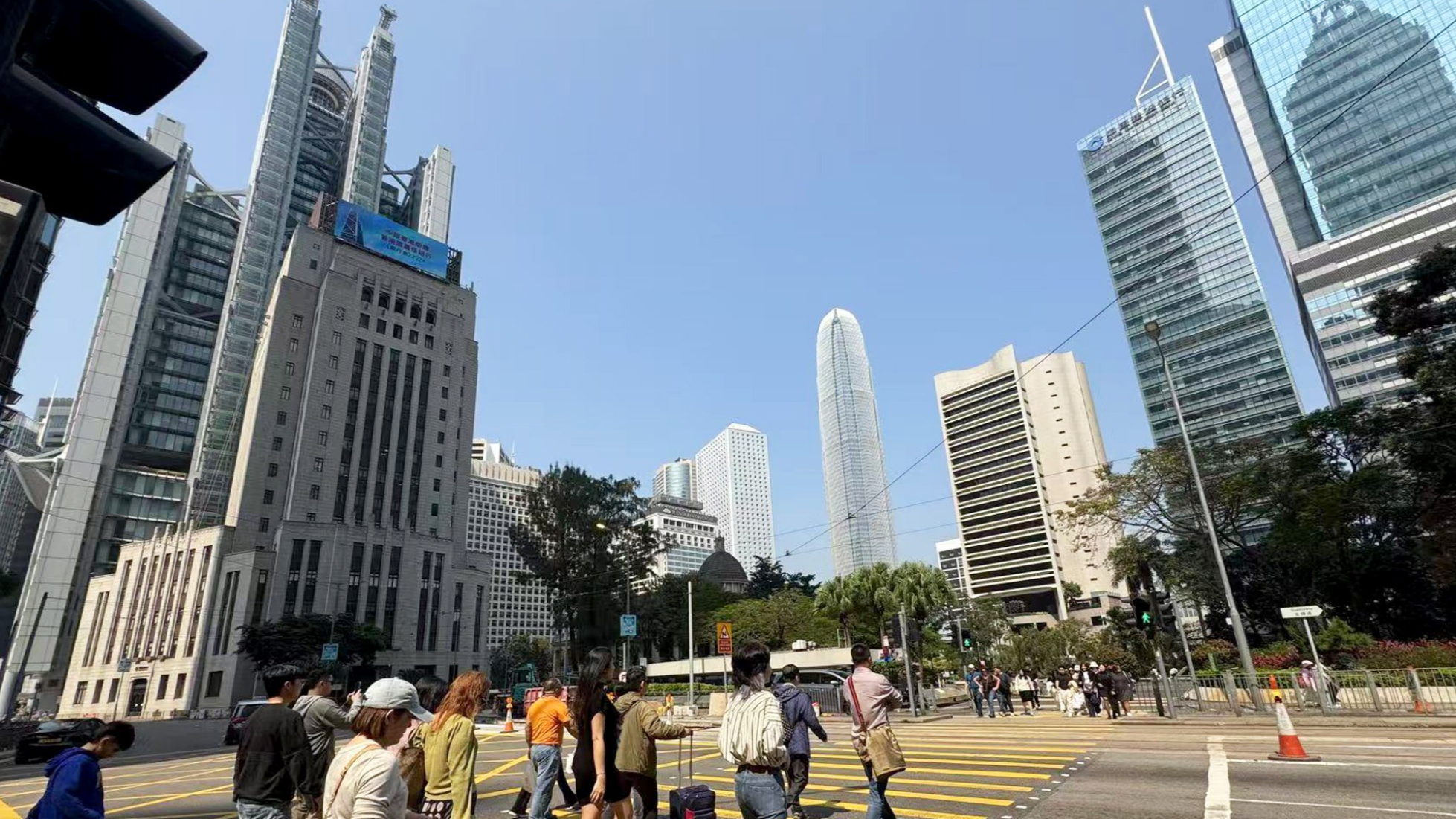
The Hong Kong Special Administrative Region must ramp up artificial intelligence application in industries and position itself as a comprehensive value chain center for facilitating Chinese mainland enterprises expanding their overseas business, a new survey indicates.
The Our Hong Kong Foundation-Dah Sing Bank Greater Bay Area Industry Development Index 2025 — compiled by the think tank and the bank — surveyed more than 3,400 enterprises in the Guangdong-Hong Kong-Macao Greater Bay Area to gauge the performance of the 11 cities across six key industries.
These industries include financial services, innovation and technology, manufacturing, trade and logistics, construction and real estate, as well as culture, sports and tourism.
For 2025, the index reveals the current and future scores for the composite of the six key industries in the Greater Bay Area are 55.5 and 57.3 respectively, reflecting a positive attitude among enterprises towards current industry development and a generally optimistic outlook for the year ahead.
The year-on-year growth rate of the six key industries in the Greater Bay Area accelerated from 4.9 percent last year to 7.1 percent this year.
ALSO READ: Hong Kong economy shows resilience in Q2
Amid the optimistic outlook, companies are concerned about how to promote global business expansion amid fierce competition.
The report emphasizes that Hong Kong should aim at providing a comprehensive suite of value-added services across all segments of the value chain to mainland enterprises that are looking to go global, reaching beyond the traditional realm of financial and professional services such as auditing and legal advice.
Hong Kong’s strengths in end-to-end services — such as market research and positioning, product development and certification, as well as offering sandbox testing environments and small-batch manufacturing for high-tech products — can be addressed to satisfy the diverse service needs of mainland companies, the report said.
“Amid ongoing geopolitical tensions and the shifting international economic and trade landscape, it is crucial for Hong Kong to capitalize on the trend of some supply chains shifting to the Global South and mainland enterprises actively expanding overseas,” acting Secretary for Commerce and Economic Development Bernard Chan Pak-li said at the Tuesday panel session explaining the index report.
Chan noted that the HKSAR government has established a dedicated task force on overseas expansion and will continue to actively encourage mainland enterprises to establish regional headquarters in Hong Kong, including treasury centers, research clusters, intellectual property service platforms, and cross-border supply chain management hubs.
ALSO READ: 23 Greater Bay Area firms make Fortune Global 500 list
Duncan Chiu, the Hong Kong Legislative Council member representing the technology and innovation constituency, suggested Hong Kong should play the standard-setter role in different industries by collaborating with other cities in the Greater Bay Area when the mainland is already leading in the electric car, robotics and drone industries.
“If these industries can be regulated by Hong Kong standards, then market players of these industries will be more recognized by international customers and investors,” Chiu noted.
Another challenge that Greater Bay Area companies identified in the survey is how to enhance AI application amid the three challenges of talent development, data security and circulation, as well as public AI platforms.
“The government should focus on strengthening AI literacy across the workforce, incorporating AI studies into general or compulsory curricula so that students acquire basic literacy and early industry exposure and strengthen practical skills,” suggested Kenny Shui Chi-wai, vice-president of Our Hong Kong Foundation and the executive director of the think tank’s Public Policy Institute.
READ MORE: HK to secure sustainable economic growth impetus
The administration should strive to facilitate cross-boundary data flow that can help widen AI model training and stimulate more innovative applications, Shui added. Moreover, it could also mull establishing some sort of public and services-orientated AI platforms that help bridge market gaps, consolidate data, lower technical barriers, and accelerate industrial transformation.
In this year’s survey, Hong Kong ranked first in financial services, trade and logistics, as well as culture, sports and tourism, while the city’s construction and real estate industries show signs of improvement. Shenzhen and Guangzhou maintain top positions in innovation and manufacturing.


